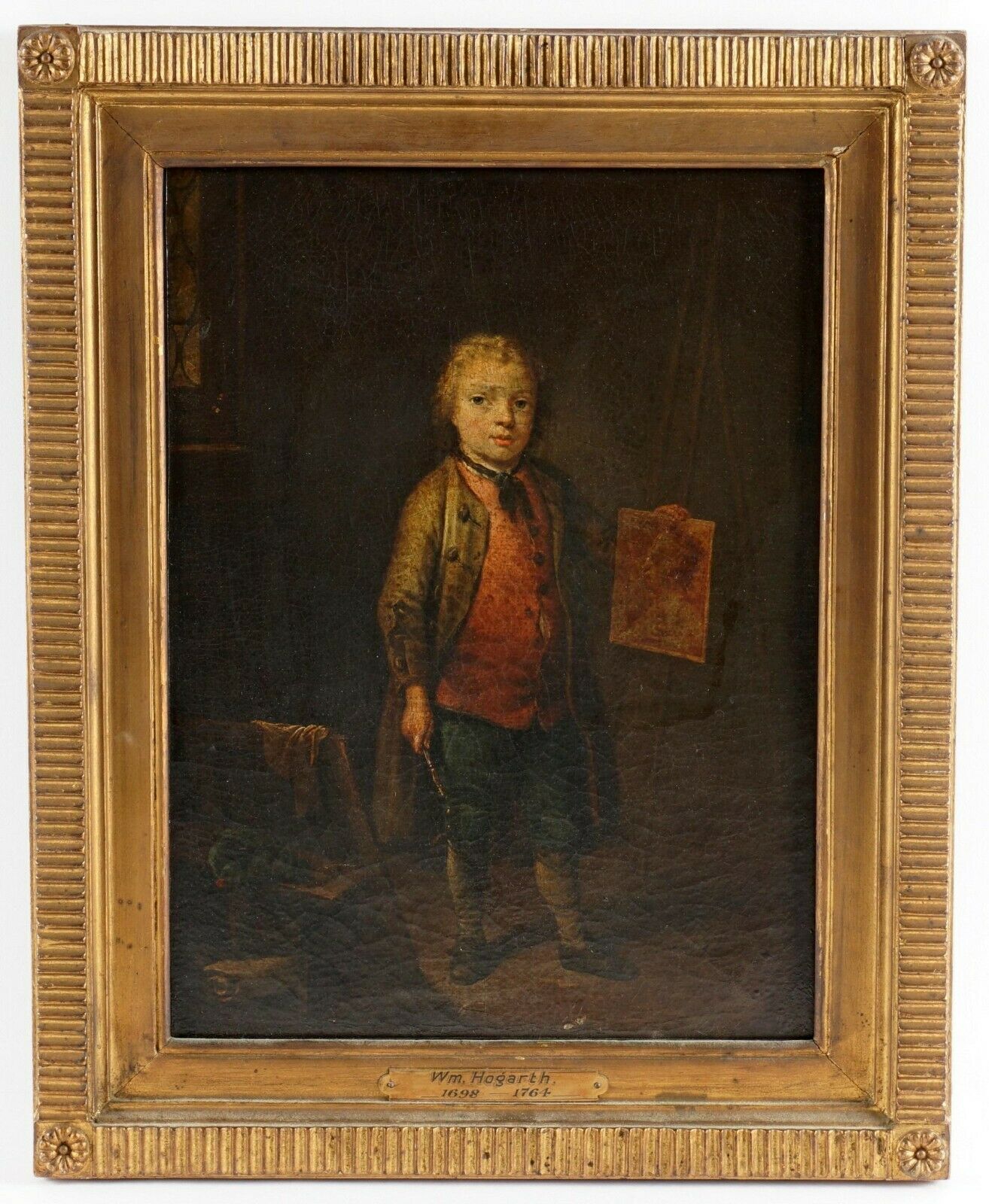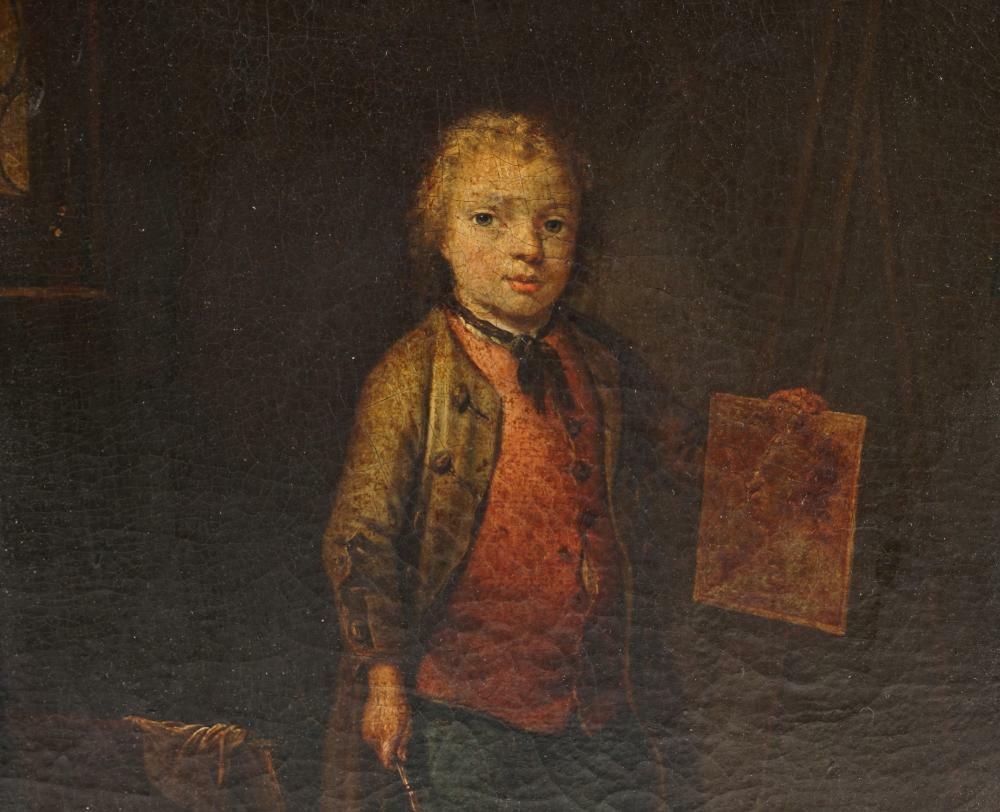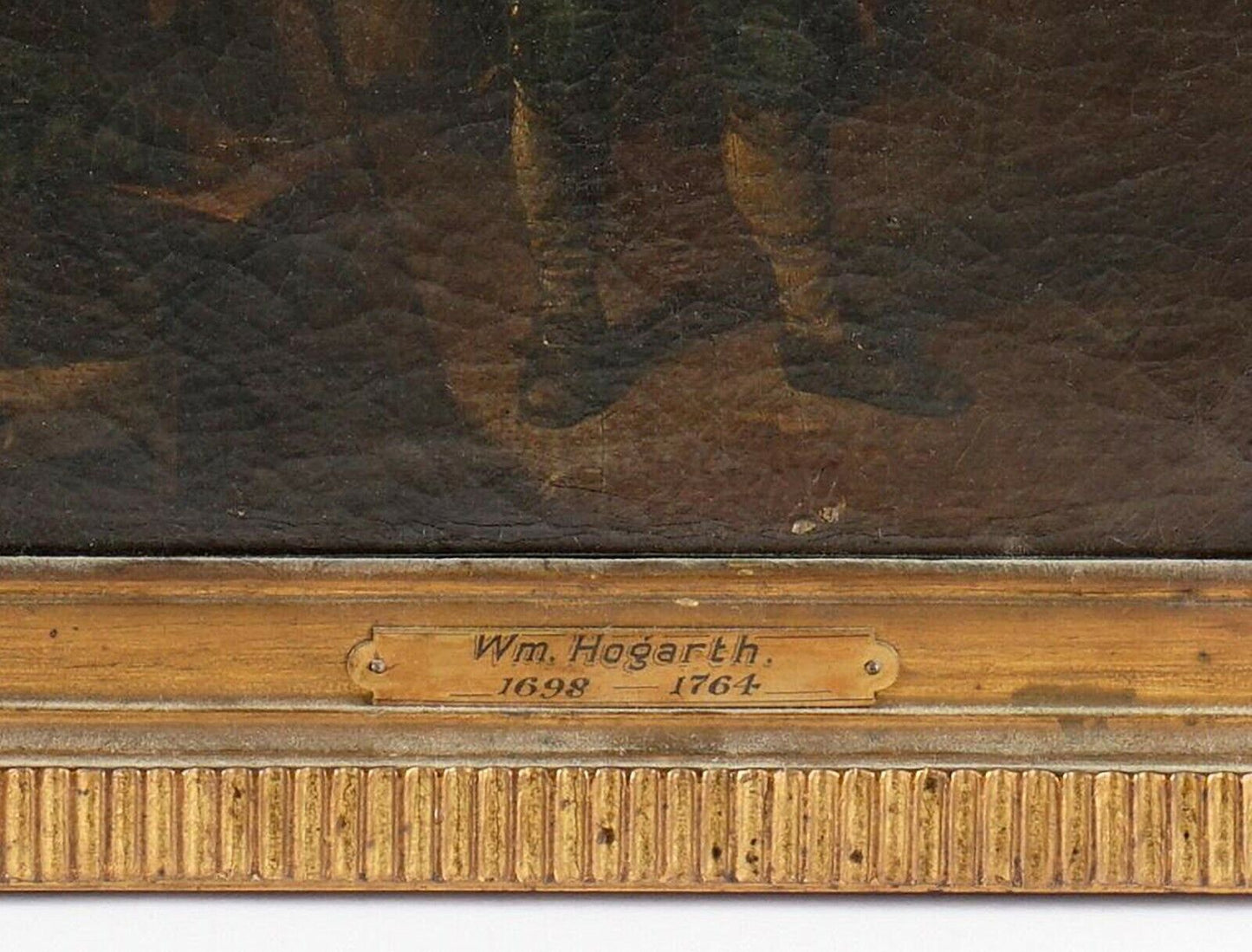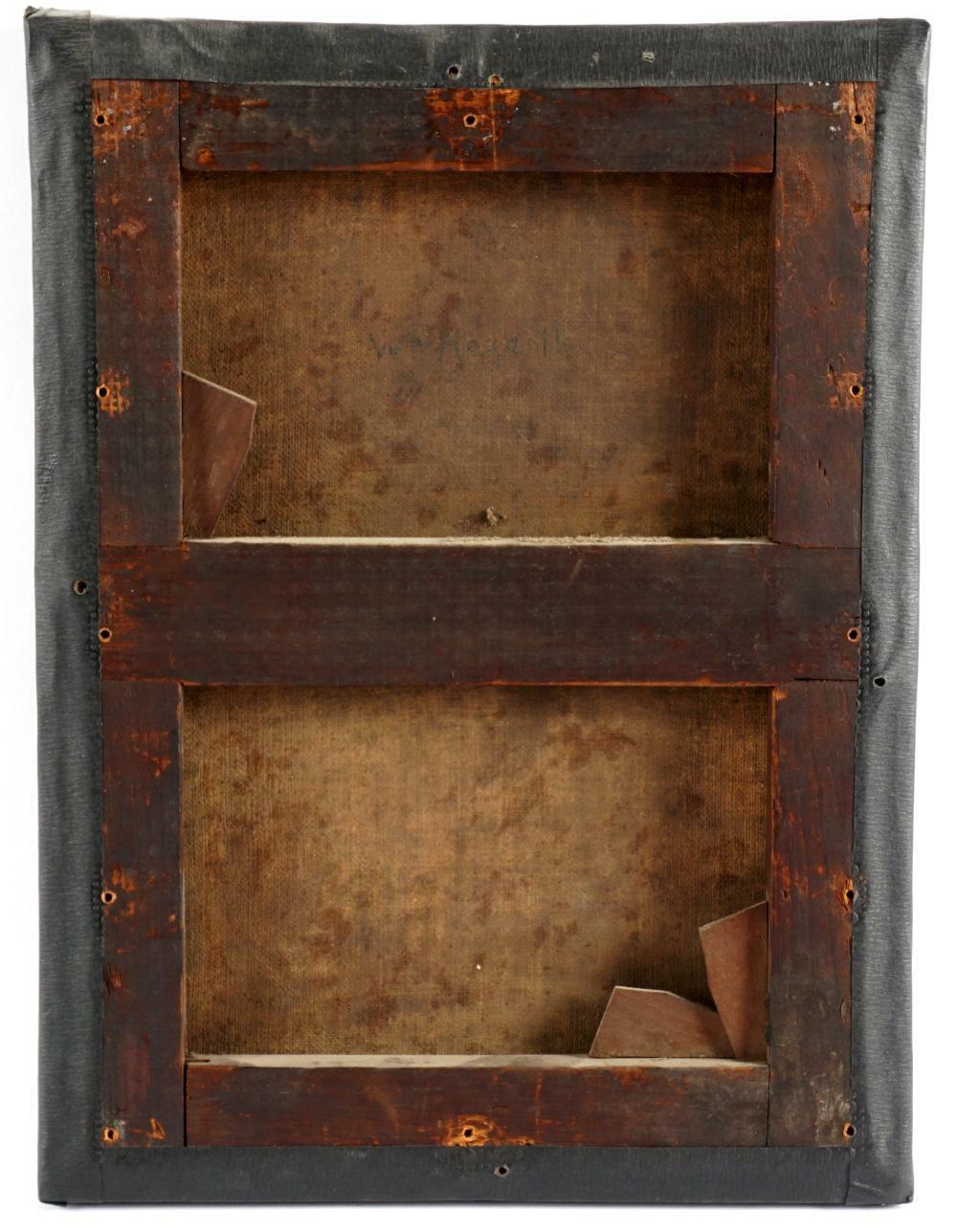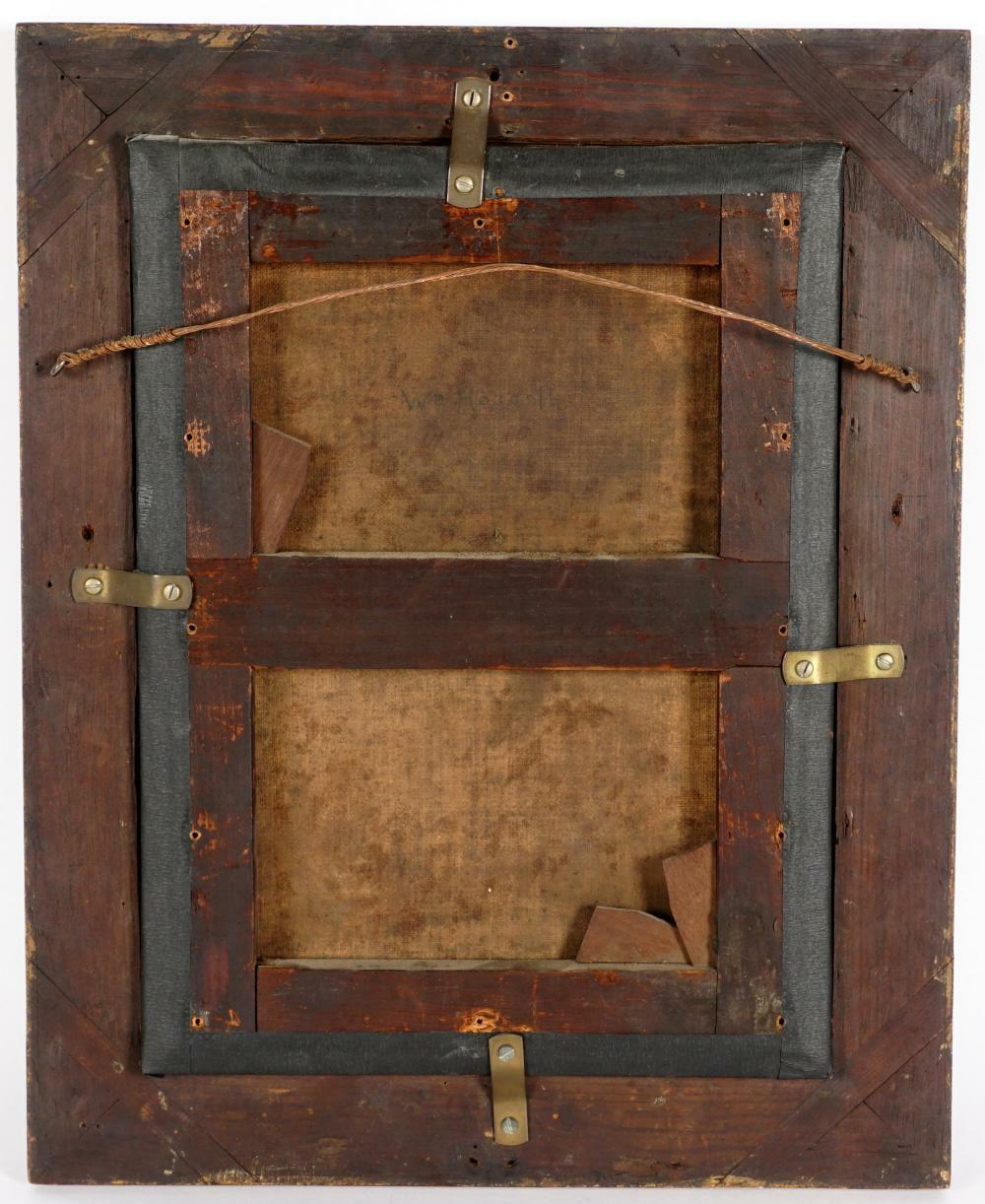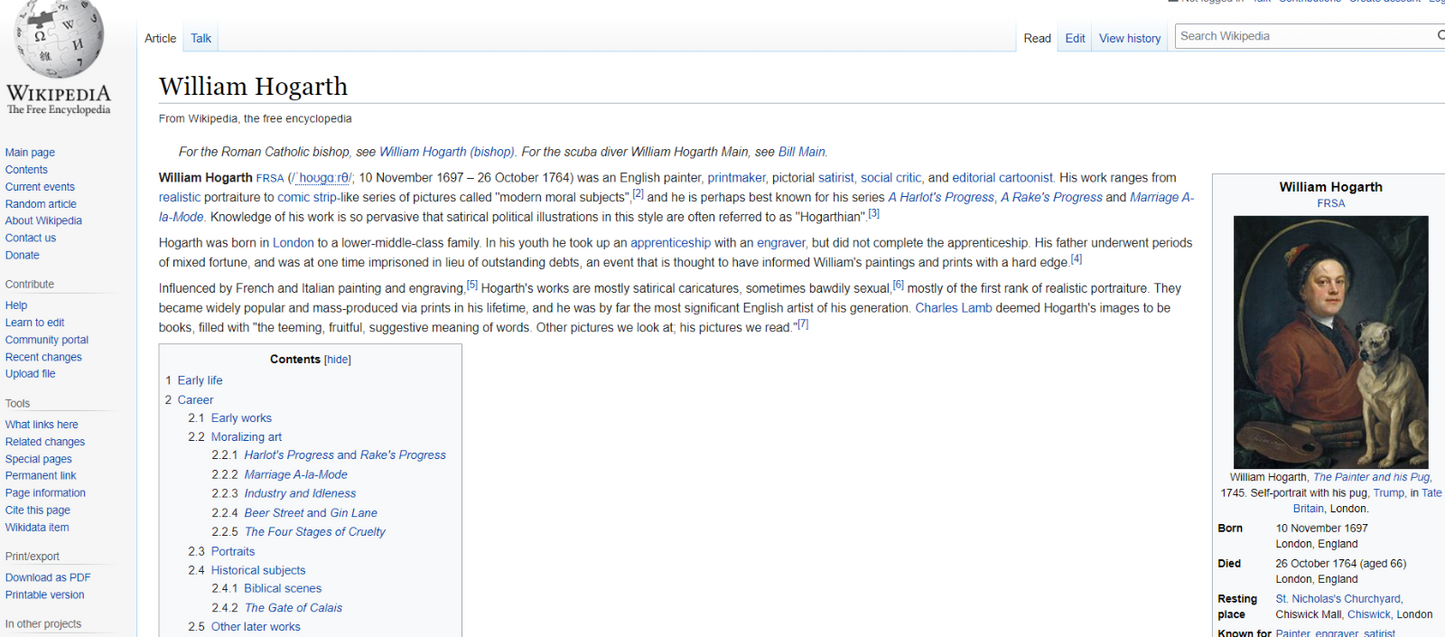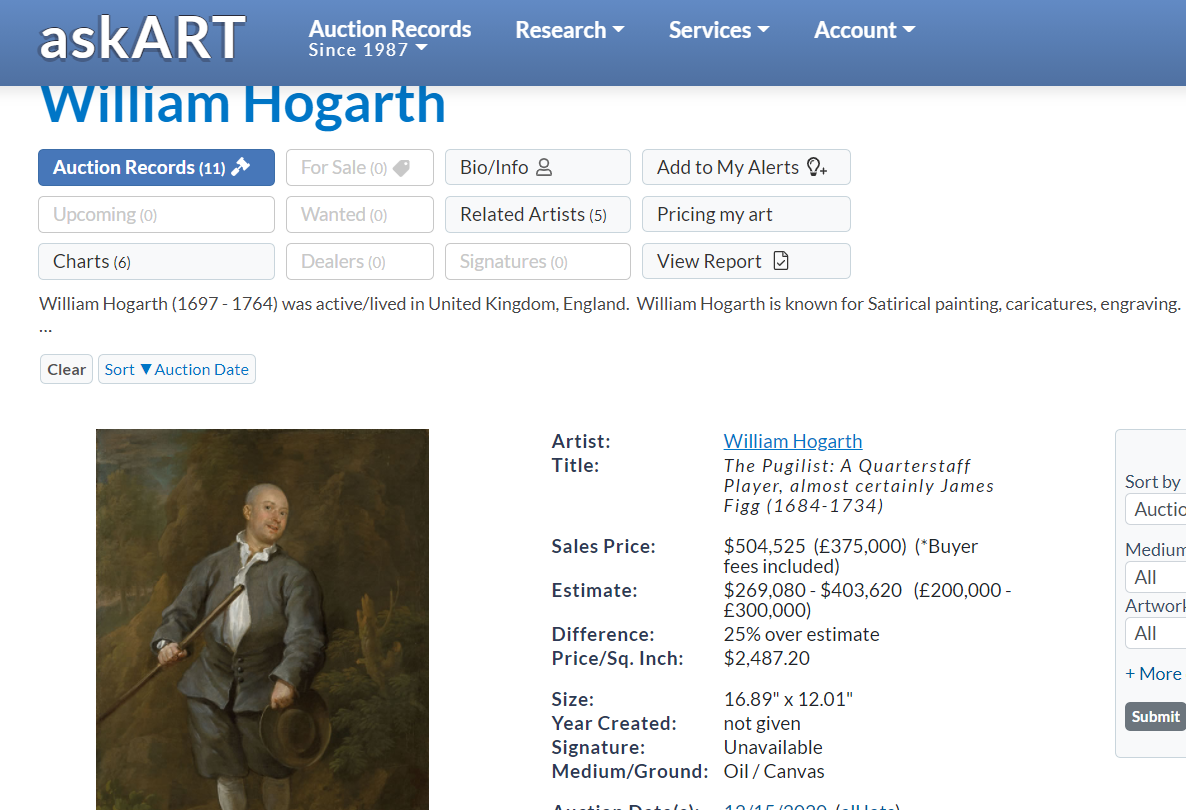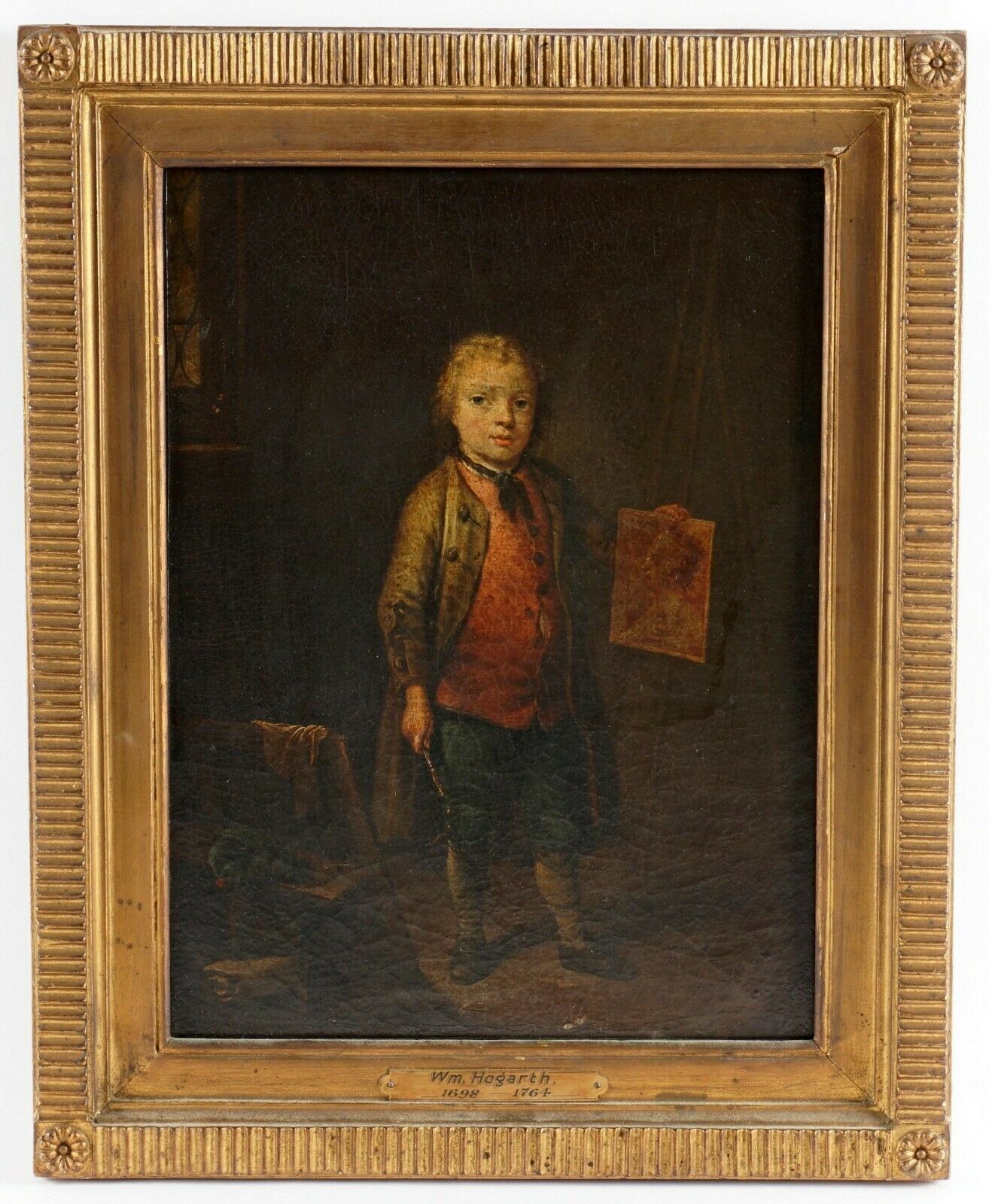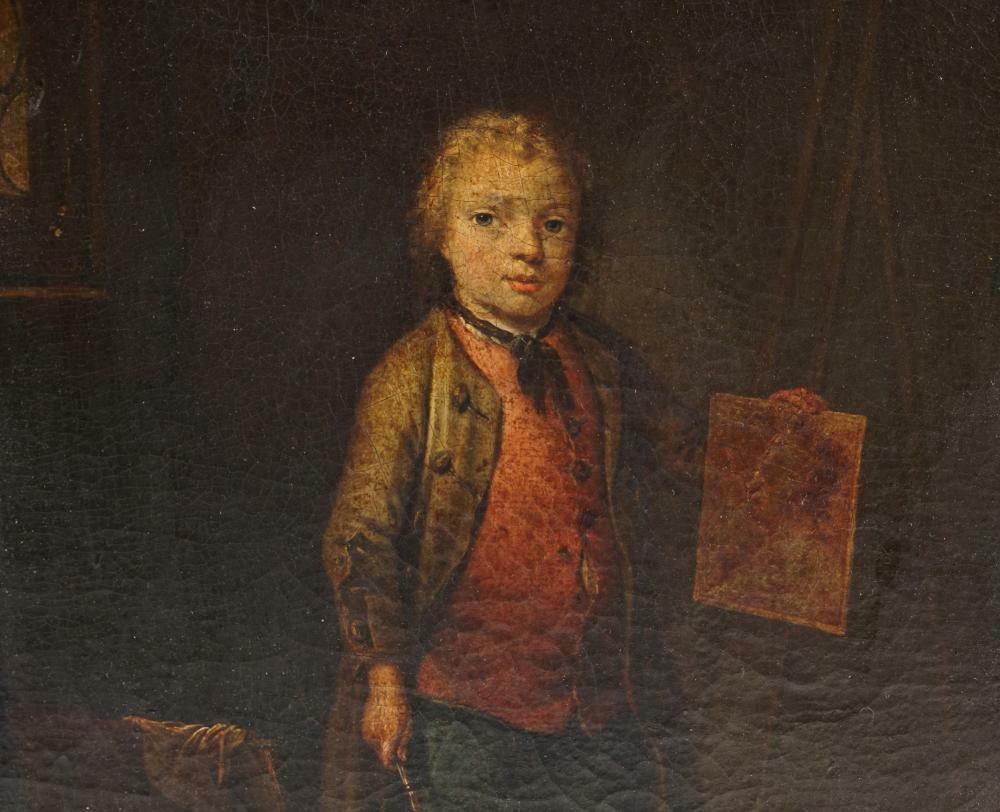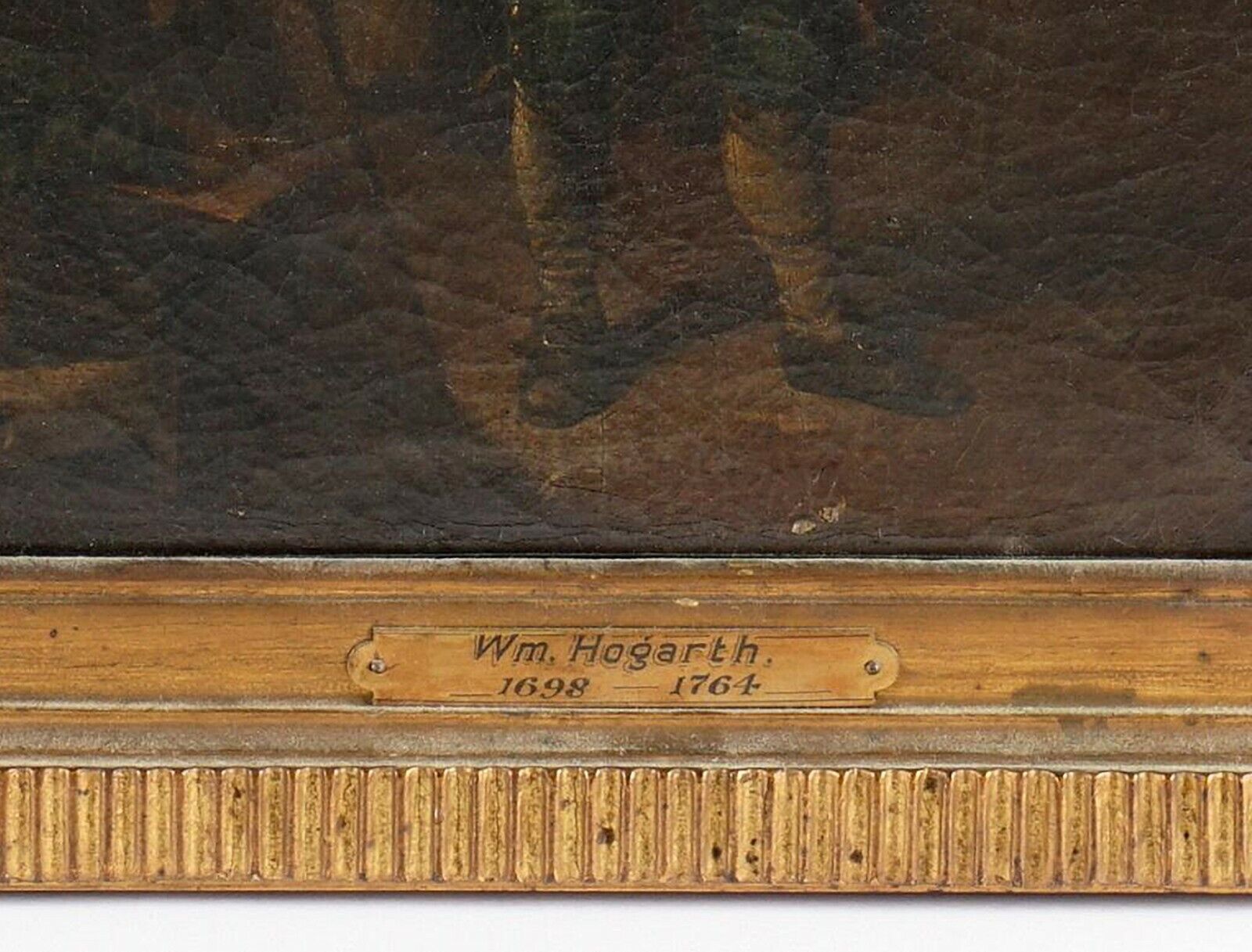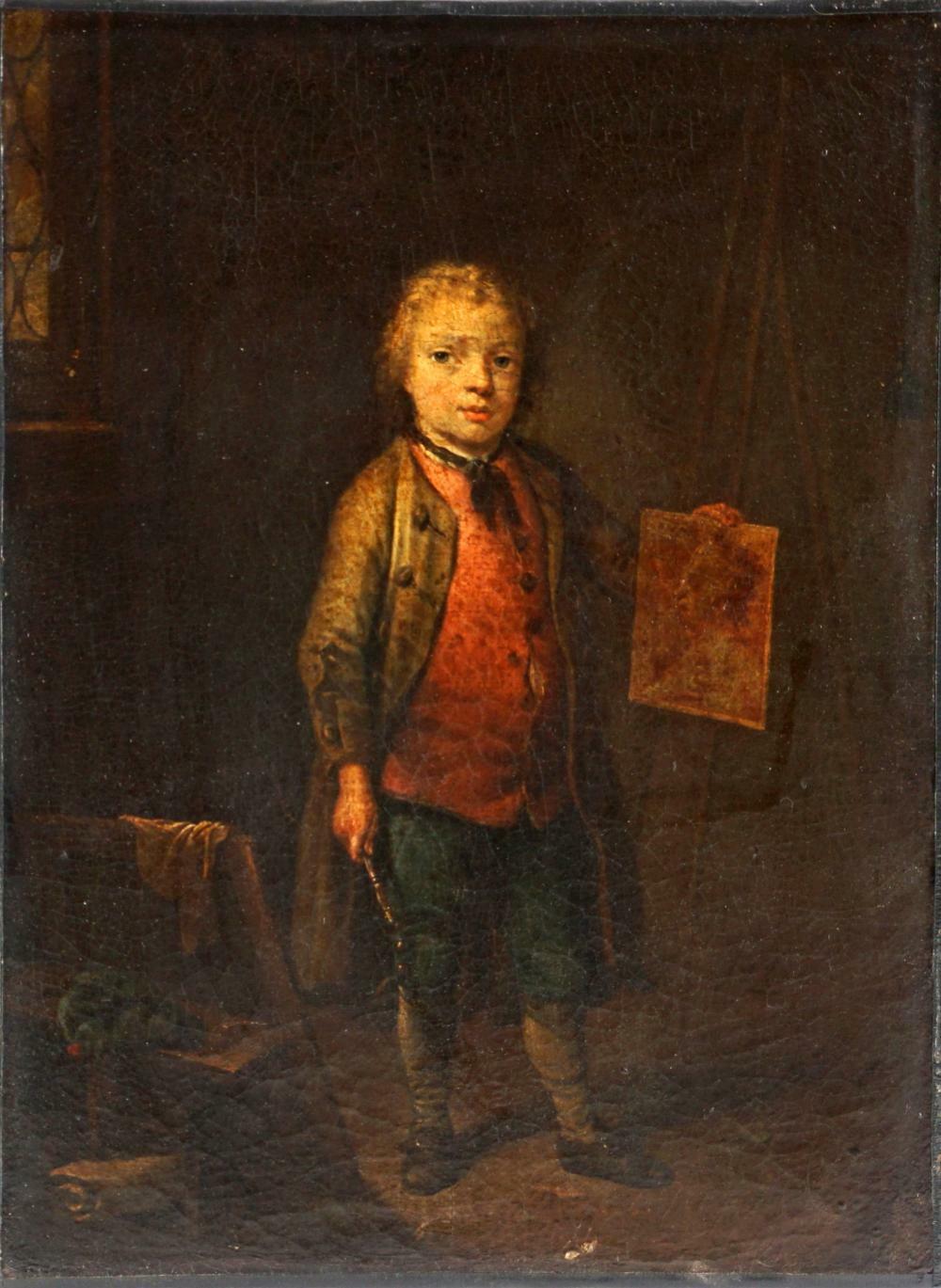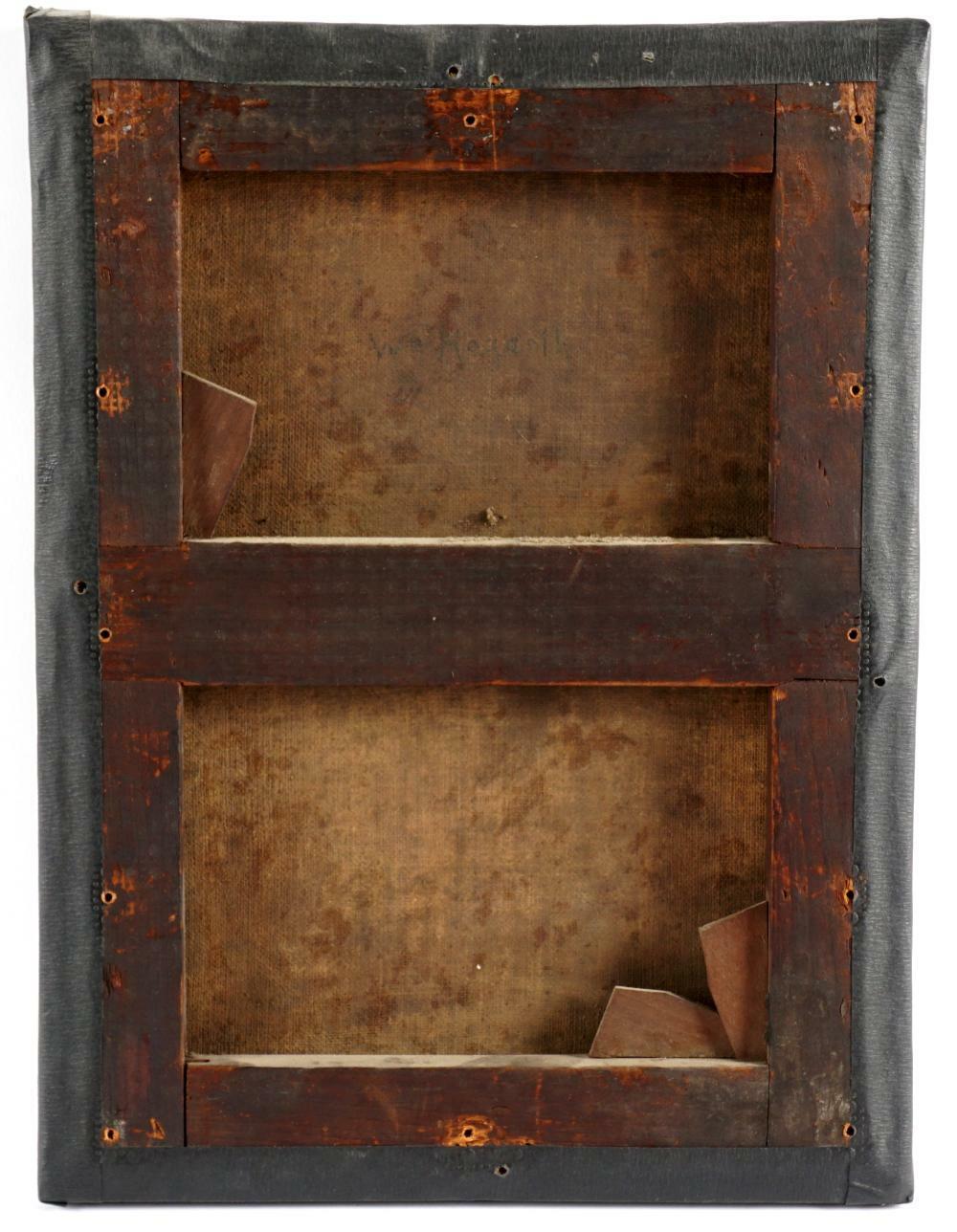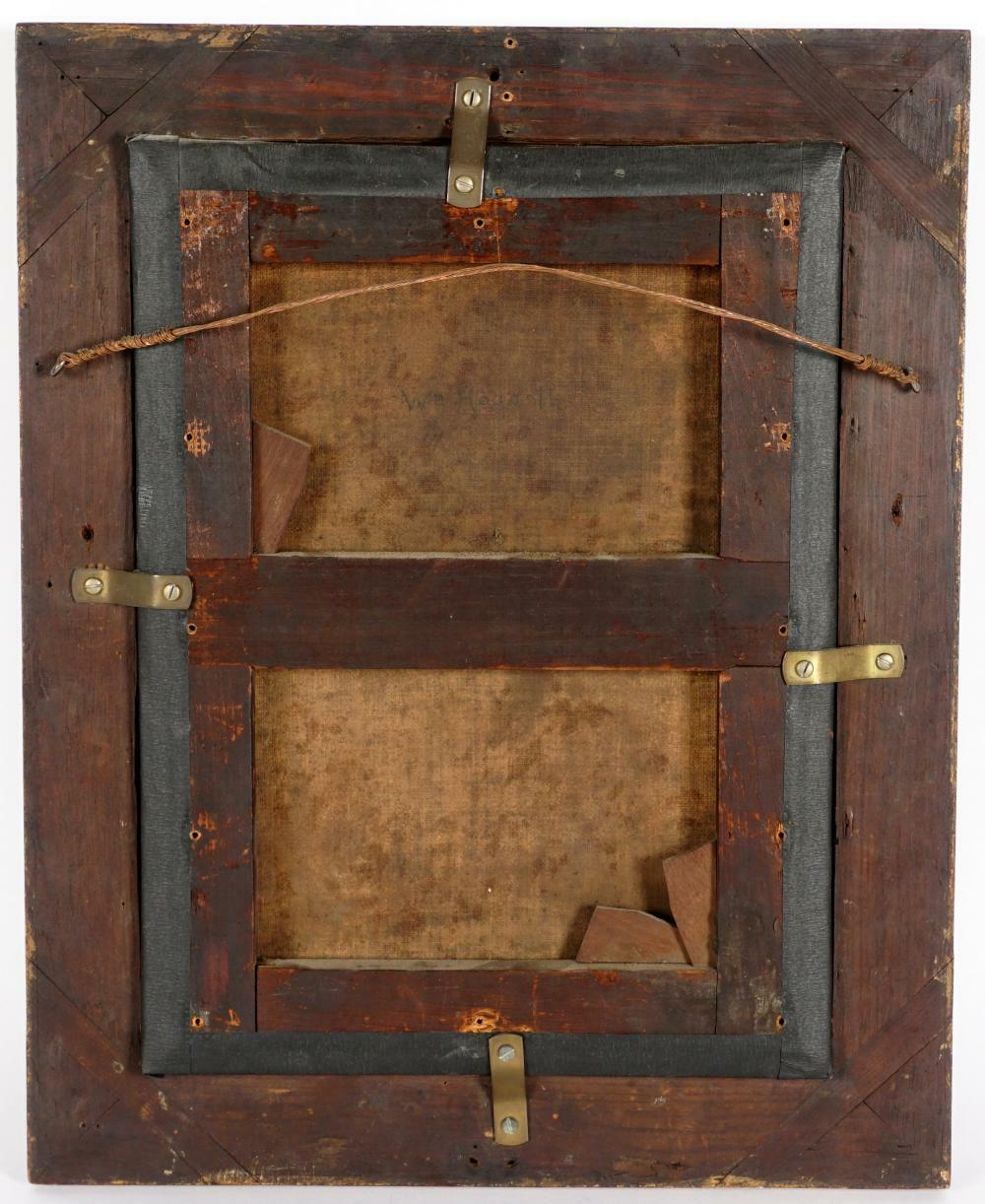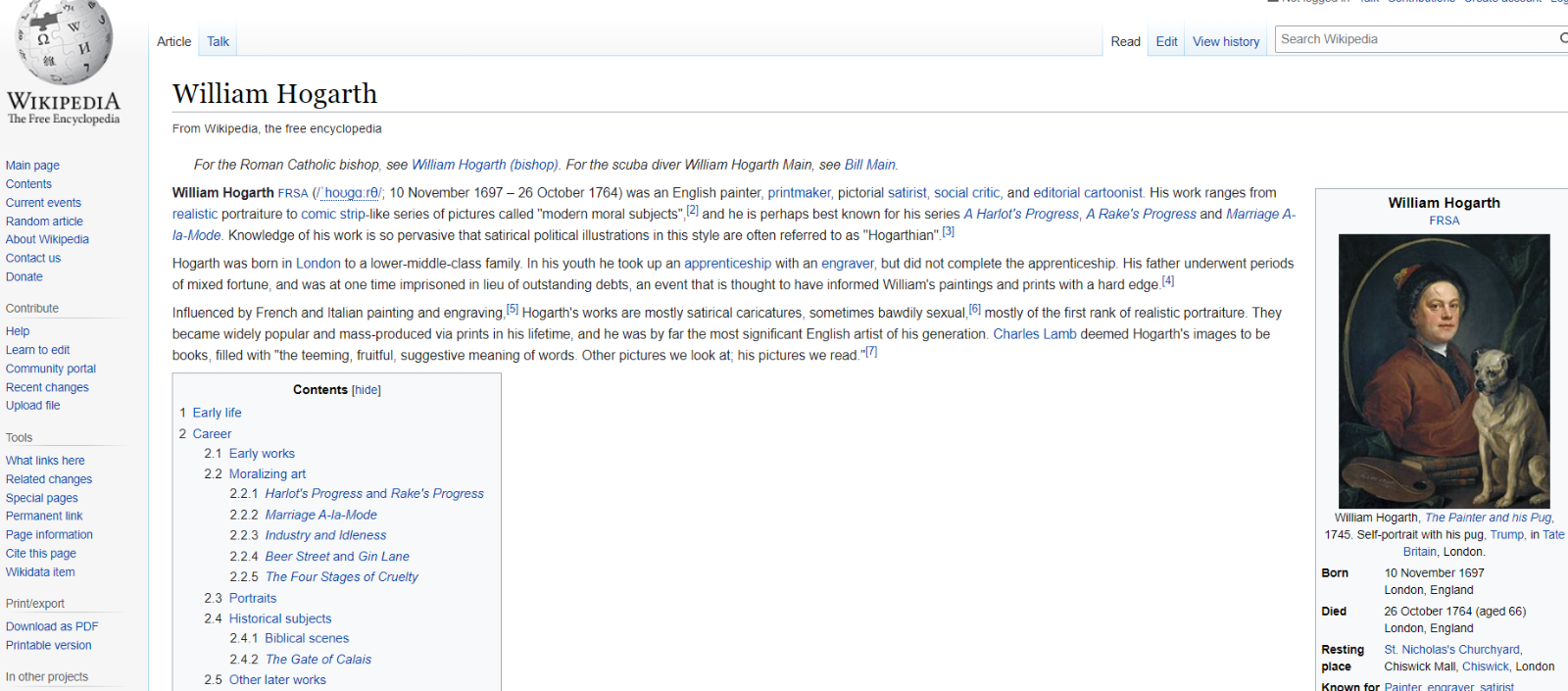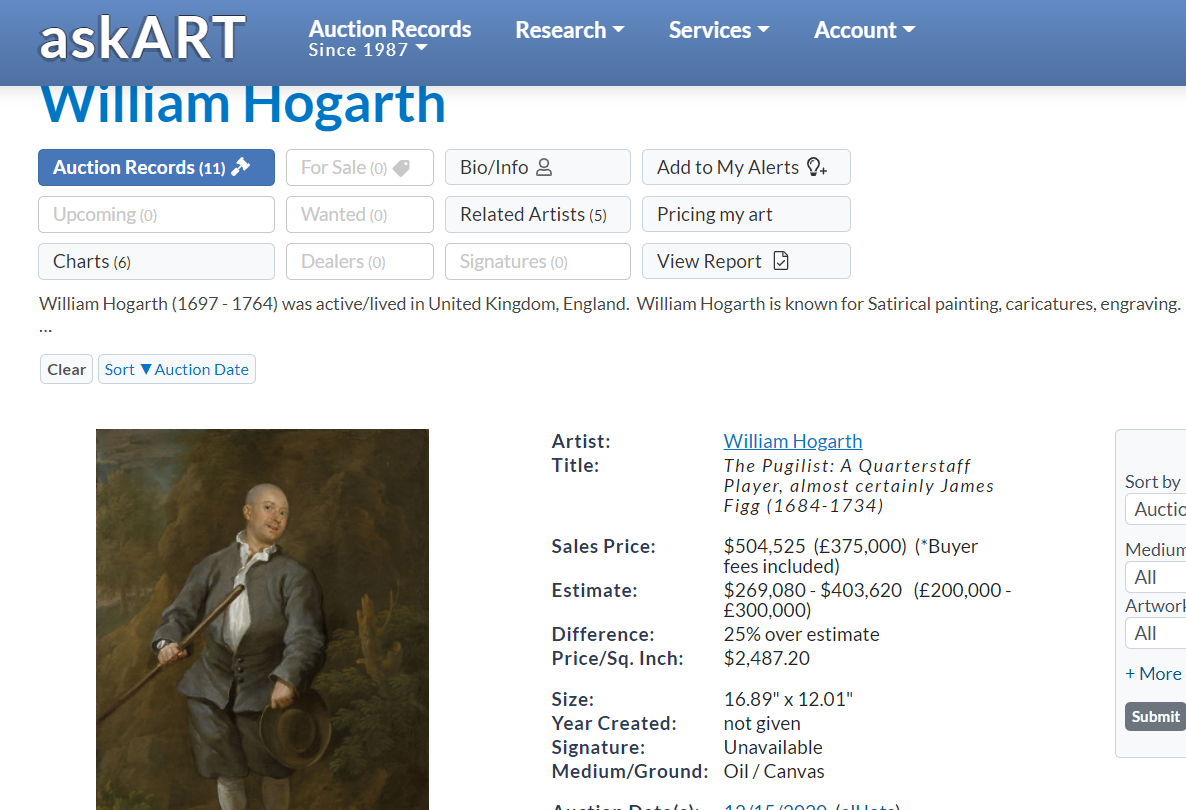Wondrous-Things.com (813) 409-4683
William Hogarth (British, 1697-1764) Portrait of Child Painter Oil on Canvas
William Hogarth (British, 1697-1764) Portrait of Child Painter Oil on Canvas
Couldn't load pickup availability
William Hogarth (British, 1697-1764) Portrait of Child Painter Oil on Canvas
Full length portrait of a boy child in an artist studio holding a brush in one hand, portrait in the other.
Possible important self portrait of William Hogarth. Portrait of Royal is likely Queen Anne.
18th Century Oil on Canvas
Size: Sight 14 inches tall x 10.5 inches wide.
Framed 17.75 inches x 14 inches
Artist attribution on frame, unsigned.
Condition: In-paint, craquelure, older reline, edges wrapped with black archival tape.
Provenance: Purchased in the 1950's by a prominent Washington DC lawyer, descended 1990. Then purchased at auction
$99.99 US flat rate shipping (includes insurance)
William Hogarth Bio
William Hogarth was born in London, England on November 10, 1697 in a house near a meat market. He came out of north-country, yoeman-farmer stock, but his father had been an unsuccessful schoolmaster, a writer of Latin grammars and compiler of a never-published dictionary, supporting his family by working for printers but clearly a failure.
All his life, Hogarth was criticized for not being able to spell, but his schoolmaster father did little to educate him. William did have a fondness for drawing and was found making drawings at every opportunity. The father went bankrupt and was in debtors' prison for five years. Hogarth's mother hawked patent medicines and the family was confined to the filthy streets outside the jail walls. More than any other, this experience shaped the young Hogarth.
At the age of fifteen he was apprenticed to Ellis Gamble, a goldsmith, and probably began engraving in 1718. In 1729 he married the daughter of Sir James Thornhill, Painter to the King.
He is perhaps the greatest realist in the history of English art, and as social critic ranks with Goya and Daumier. Self-taught and contempuous of classical training, Hogarth gloried in his coarse Englishness and took every chance he could to sully the continent and the affectations in his own society that he took to bo European pollution of London life. His subjects were animated, mortal, common and alight with malice. The idea of telling a story not in one picture but in several images arranged in a series, like scenes in a play, was Hogarth's own and earned him his renown as England's first narrative painter.
Hogarth seems very close to being incarnation of John Bull. He was the quintessence of the Englishman; his prejudices against foreigners as strong as Colonel Blimp's; his business instincts such that he could turn out prints his public could buy without sacrificing quality to quantity or compromising with his principles. He had professional success, moral earnestness and, his most attractive characteristic, hatred of cruelty.
Hogarth was a small man, barely five feet tall. Neither prude nor Puritan, Hogarth sought to lay bare the foibles of his England. He began life as an apprentice silversmith, and wound up with a country house and six servants. In art, Hogarth depicted ordinary people as they lived. He was an inspiration to Goya and Daumier. His rough dramatic paintings also helped open the way for the French impressionists to chronicles the real world around them. He died in 1764.
Materials
Materials
Shipping & Returns
Shipping & Returns
Dimensions
Dimensions
Care Instructions
Care Instructions
